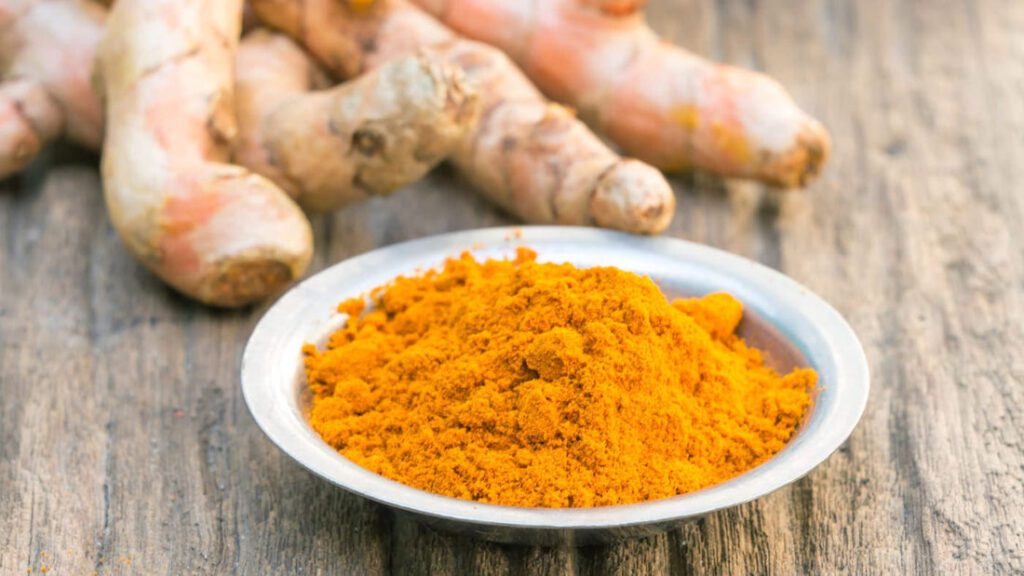Turmeric, a spice commonly used in Indian and Middle Eastern cuisine, has a warm, bitter taste and bright yellow color due to its active ingredient, curcumin. One teaspoon of turmeric contains only six calories and is packed with nutritional benefits, including antioxidants and anti-inflammatory properties. Turmeric has been shown to potentially prevent or manage chronic diseases such as heart disease, arthritis, and some types of cancer by reducing inflammation. It can also potentially promote brain function by increasing levels of brain-derived neurotrophic factor and improve heart health by lowering cholesterol levels and reducing inflammation.
The Secret Benefits of Cooking with Turmeric
What is Turmeric?
Turmeric is a spice that is commonly used in Indian and Middle Eastern cuisine. It is derived from the plant Curcuma longa, which is a member of the ginger family. Turmeric has a warm, bitter taste and a bright yellow color that comes from its active ingredient, curcumin.
Nutritional Value of Turmeric
Turmeric is not only flavorful, but it is also packed with nutritional benefits. One teaspoon (2 grams) of turmeric contains:
- 6 calories
- 0.3 grams of protein
- 0.6 grams of carbohydrates
- 0.1 grams of fat
- 0.1 grams of fiber
- 8% of your daily manganese requirement
- 5% of your daily iron requirement
- 3% of your daily potassium requirement
- and small amounts of other vitamins and minerals such as vitamin C, vitamin B6, and magnesium
The Health Benefits of Turmeric
1. Anti-Inflammatory Properties
Curcumin, the active ingredient in turmeric, has been shown to have strong anti-inflammatory effects. Inflammation is linked to many chronic diseases, including heart disease, arthritis, and some types of cancer. By reducing inflammation, turmeric may help prevent or manage these conditions.
2. Antioxidant Properties
Turmeric is also a powerful antioxidant. Antioxidants protect your body from free radicals, which can damage your cells and DNA. Free radicals are thought to contribute to aging and many diseases, including cancer. The curcumin in turmeric has been shown to be effective against free radicals, potentially reducing the risk of disease.
3. Brain Health
Curcumin has been found to increase levels of brain-derived neurotrophic factor (BDNF), a protein that is essential for brain health. Low levels of BDNF are associated with depression, Alzheimer’s disease, and other neurological conditions. By increasing BDNF, turmeric may help promote brain function and prevent these conditions.
4. Heart Health
Turmeric has been shown to help improve heart health in a few ways. It may help lower cholesterol levels, reduce inflammation, and improve the function of the endothelium, which is the lining of blood vessels. By improving these factors, turmeric may help reduce the risk of heart disease.
Ways to Cook with Turmeric
There are many ways to incorporate turmeric into your diet. Here are a few ideas:
- Add a sprinkle of turmeric to scrambled eggs or omelets for a boost of flavor and color.
- Mix turmeric into hummus or other dips for a delicious and nutritious snack.
- Use turmeric in marinades for meat or tofu for a flavorful twist on your favorite dish.
- Add turmeric to soups, stews, or curries for a warm and comforting meal.
- Brew a cup of turmeric tea by steeping turmeric powder in hot water for a few minutes, then adding honey or lemon to taste.
Cautions and Considerations
While turmeric is generally safe to consume, it is important to keep a few things in mind. Turmeric may interact with certain medications, including blood thinners and diabetes medications. It may also cause gastrointestinal side effects in some people, especially in large doses. If you have any health concerns, be sure to talk to your doctor before adding turmeric to your diet.
Conclusion
Turmeric is a versatile and delicious spice that offers a wide range of health benefits. By incorporating turmeric into your cooking, you can enjoy its flavorful and nutritious benefits while potentially improving your overall health.
